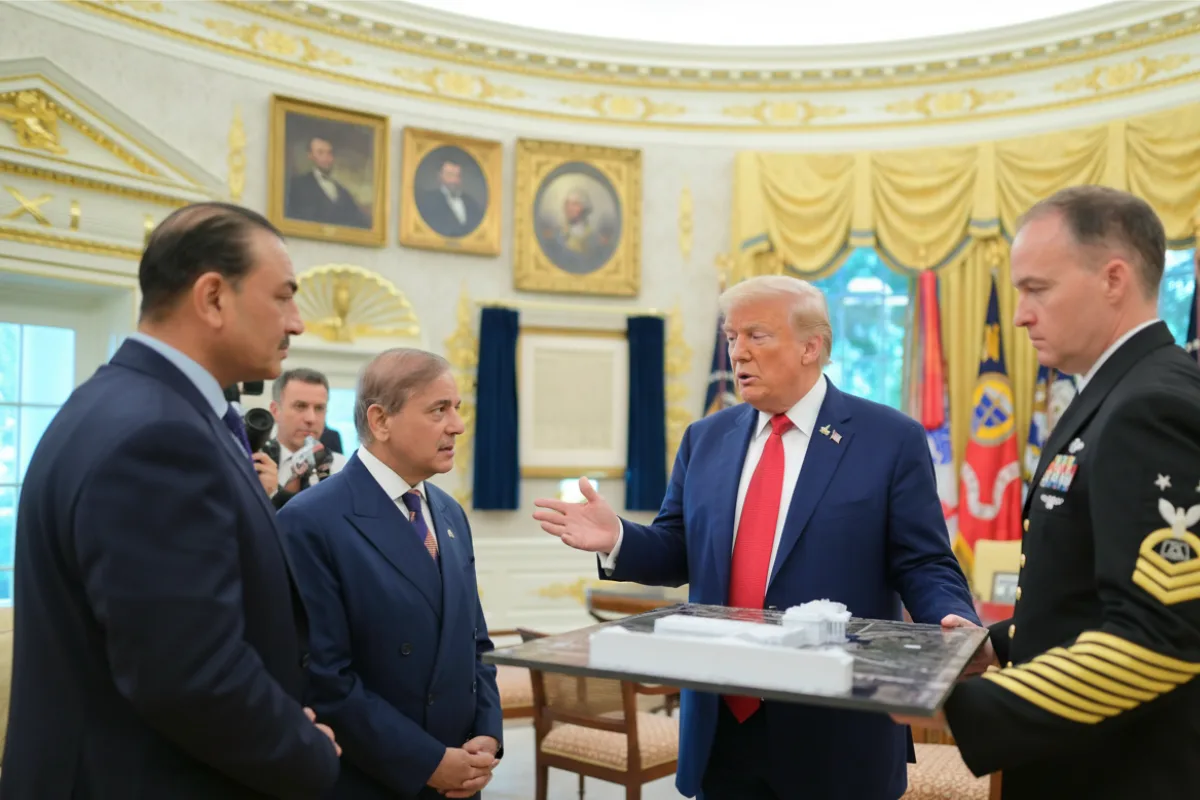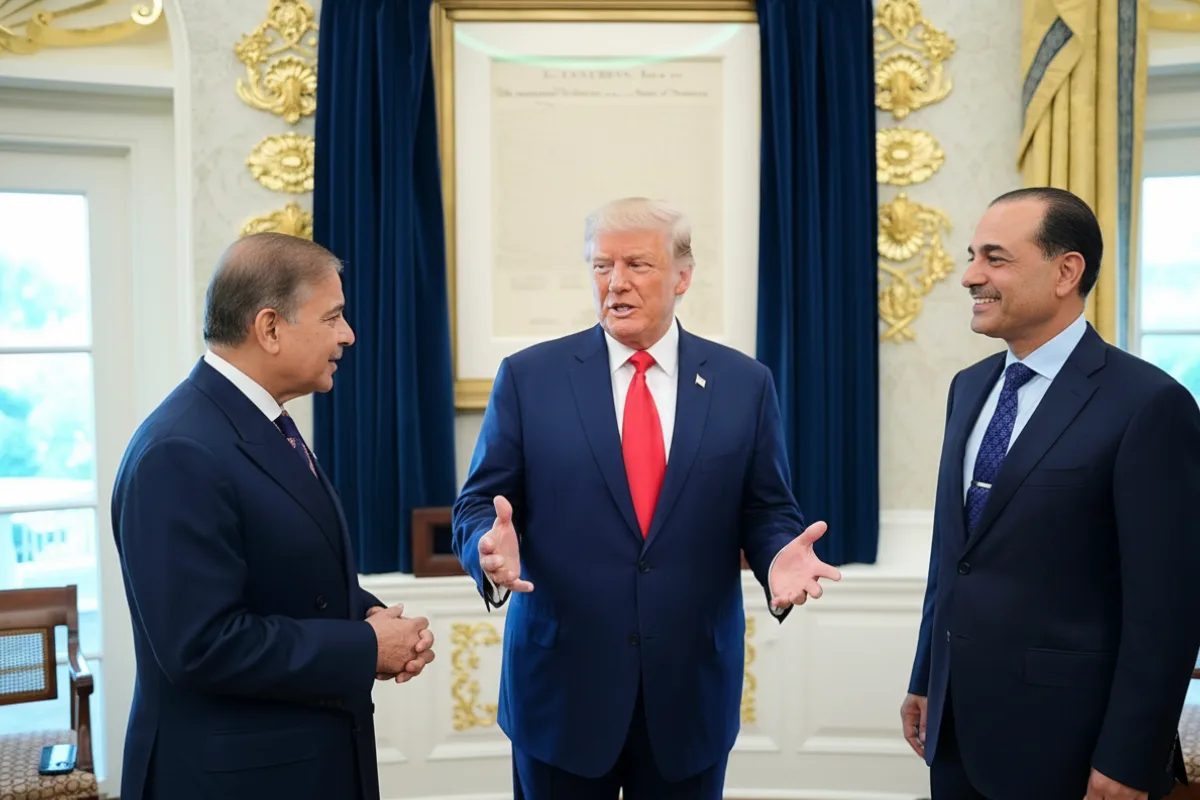
Introduction
WASHINGTON — President Donald Trump hosted Pakistan’s Prime Minister Shehbaz Sharif and Army Chief Field Marshal Syed Asim Munir at the White House on Thursday, a high-profile meeting that U.S. and Pakistani officials describe as a sign of warming ties between the two countries.
The visit followed Sharif’s appearance at the U.N. General Assembly and came amid broader shifts in U.S. regional diplomacy.
What happened
Sharif and Munir met Trump in the Oval Office for private talks that lasted roughly an hour. The meeting was closed to the press; Pakistan’s official accounts confirmed the visit and posted photos of the leaders together.
Senior U.S. officials also attended parts of the discussion. Observers say the meeting reflects renewed U.S. engagement with Islamabad after a period of cooler relations.
Why this matters now

The visit comes at a sensitive moment: Washington is recalibrating partnerships across South Asia amid the Israel-Hamas war, shifting trade approaches with India, and fresh interest in energy and supply-chain security.
A White House meeting with both the civilian prime minister and the army chief signals Washington’s interest in broad, practical talks — from security cooperation to trade and energy.
Key quotes & optics
Speaking before the meeting, President Trump called Sharif and Munir “great leaders,” a public signal of warmth from the U.S. side.
Pakistan’s government posted official photos and short statements confirming the meeting on its social feed. Those visual cues — leaders side-by-side in the Oval Office — often carry as much diplomatic weight as formal communiqués.
Likely topics
Analysts expect a practical agenda: regional security, counter-terror cooperation, trade ties and energy talks. Earlier this year the two countries reached a trade framework that could include cooperation on oil or minerals, and officials have discussed ways to stabilize supply chains that matter to both economies. These are the kinds of issues typically raised in closed White House meetings.
What to watch next
- Official readouts: White House and Islamabad may issue joint statements or fact sheets about any agreements.
- Follow-up visits: Expect lower-level delegations (trade, defense, energy) to meet in coming weeks if the leaders set a practical agenda.
- Reactions in the region: New ties with Washington could affect Islamabad’s relationships with Beijing and New Delhi — watch regional commentary.
Top sources: Associated Press, NDTV, Government of Pakistan official post.


